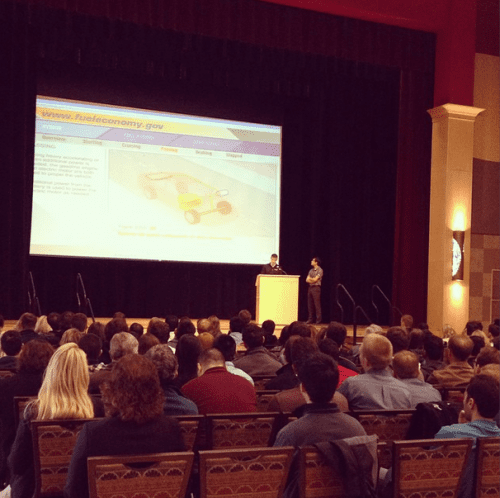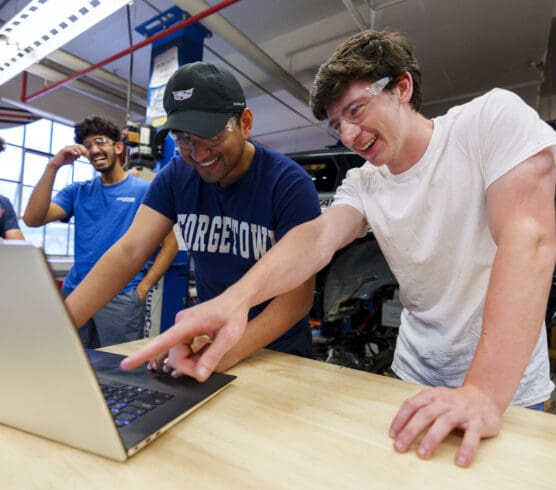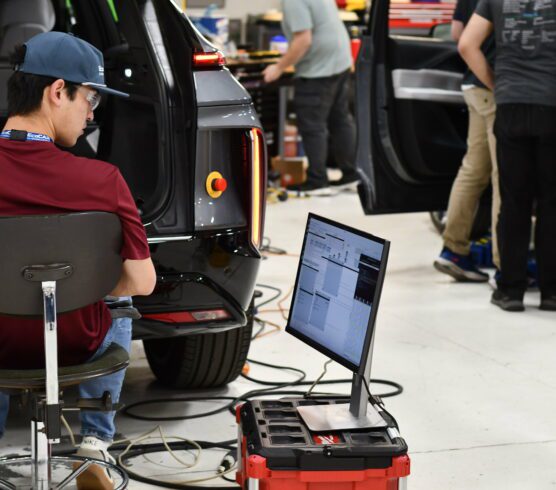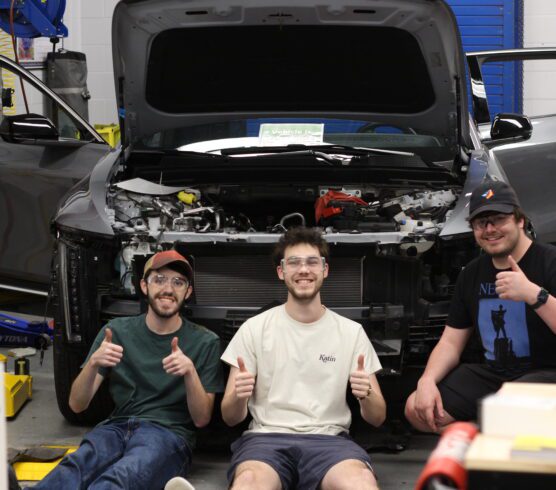Last month saw the conclusion of the Year One Fall Workshop, where teams were given a crash course in the concepts and technologies they will need to design their EcoCAR 3 vehicles. The workshop was not only an experience for the students, but also for the organizers that helped execute the event. As one of the new EcoCAR 3 organizers, Argonne National Laboratory’s Trevor Crain has spent the last several months helping to plan the workshops and competition as a whole. His fireside reflections on the process are below:
For the past three years, I had the unique opportunity to oversee the creation and operation of an EcoCAR 2 team at the University of Washington. During my time as a team leader in EcoCAR 2, I had to constantly make decisions and determine what was best for the team as a whole.
As anyone in a position like that can tell you, most of those decisions don’t have a clear answer; there is a huge breadth of experience and motivations on any given EcoCAR team, and it was always necessary to think about how the choices we made would affect each of our students’ abilities to learn and excel in the project.
In that respect, being an EcoCAR 3 organizer actually has many similarities, though there is a different scale in my new position. This competition has 16 teams with dozens of students each, and every team has a different set of strengths, motivations, and experiences that will influence how they perform in the coming years. It is an enormous challenge to determine how to run a competition in a way that challenges all teams, while also ensuring that the students learn as much as possible in the process. In the weeks leading up to this workshop, it was incredibly reassuring to see how much care is taken by all the organizers to craft the best possible experience for our students.

As an organizer, you learn just how much time and effort that goes into the planning and execution of these events. Things like making sure there are enough rooms booked with the right number of seats, planning out the presentation topics, even making sure lunches and session breaks go as planned; all of these take far more effort than you realize as a student, probably because they generally run smoothly enough to take for granted. The presentations themselves are quite a challenge to develop and deliver. It is a tough prospect to craft a presentation that is technically defensible, useful in the context of the deliverables and engineering process, and approachable by students with many different backgrounds and experience levels.
It turns out that setting up and running an EcoCAR competition is just about as difficult as building an EcoCAR itself, and so far it seems to be an equally rewarding experience.



